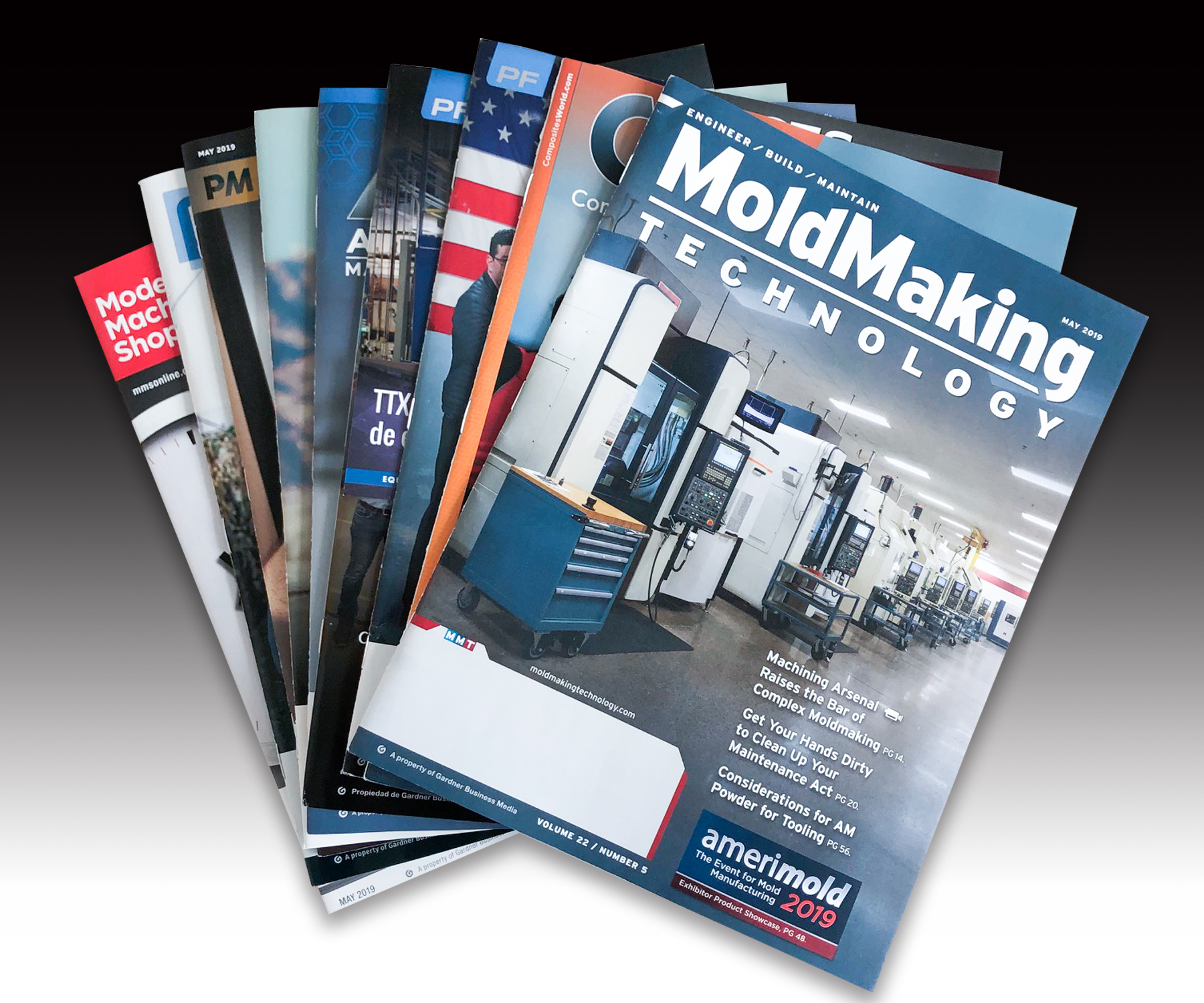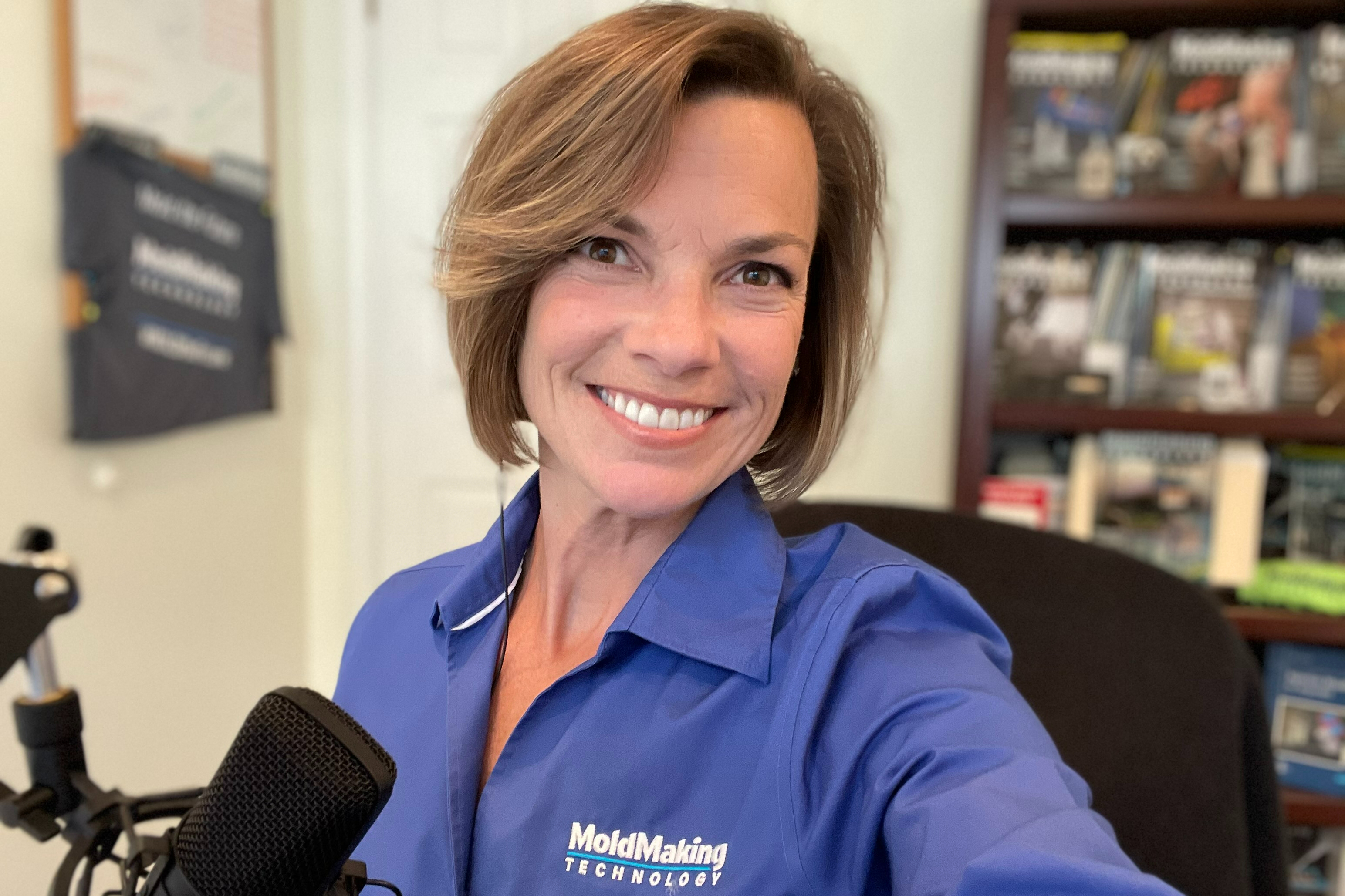HSM Equals Accuracy and Precision at Less Cost
A California moldmaker makes the most of state-of-the-art machine tool and design technology to deliver competitive advantages for a medical device customer.
#medical #fiveaxis #Grinding
From an unpretentious location in El Monte, CA, near Los Angeles, a moldmaker is successfully applying the latest machine tool and design technology to create new life-saving devices.
Steve Raiken, president of Reny & Company, Inc., is a native of Southern California. He became interested in moldmaking when working as a sales representative for a local plastics injection molder after graduating from the California Institute of the Arts with a bachelor of fine arts degree.
Featured Content
Raiken was intrigued by the art and craftsmanship of making molds, but found his strengths were in design and concept more than the hands-on tasks of polishing or detailing molds. He was most captivated, however, by the growth of the medical device industry and the business of developing high quality, highly complex tooling with demanding leadtimes for designs in development.
Raiken soon discovered his best means for addressing these emerging opportunities was to establish his own operation. He launched Reny & Company in the mid-'80s as a pilot and short-run injection molding operation and began approaching R&D prototype projects on his own. In 1990, he expanded his moldmaking specialty, adding custom injection molding production capability to the operation.
More than a decade later, Reny & Company's focus is still in the medical field, with the company realizing double-digit annual growth rates over the last several years. Raiken attributes his company's business success to achieving the right mix of man, machine and technology to stay ahead of the market's demands.
High-Speed Machining Captures Focus
"Our forte is highly technical, challenging products that require a complete solution," Raiken says. "We provide full development cycle capability, from advising at the development stage, to building prototypes when necessary, and building the production molds-supplying the customer with the finished plastic components they need for their products."
A key aspect to Reny's successful evolution has been the ability to explore new technologies and apply them to develop business opportunities. Raiken explains, "A couple of years back we were looking at getting CNC EDM capability and were very close to making a machine purchase when I realized that EDM wasn't where my backlog existed. My backlog was in fabricating electrodes."
Raiken's focus changed when Mikron Bostomatic Corporation's (Holliston, MA) regional sales manager, Reto Fehr, made his initial sales call. "Reto came in and exposed us to the concept of high-speed machining. It was a new idea on how to approach our work. He touted the Mikron VCP 600 high-speed machining center," Raiken recalls, "saying, 'this will not only cut your electrodes but will cut hard steel as well. Why even make the electrode if you can just mill the cavity?'"
Fehr said he knew immediately after looking at Raiken's business that the VCP 600 would be the perfect fit for him. "He's working in the medical industry and, in addition to making the tooling, he has to provide the molded parts. This requires great precision and short throughput times. If something isn't right with the mold, then he must go back and redo the tool itself. Also, he had limited EDM capacity, which made him a good candidate for going directly into hard milling-for the time and cost savings-since the high-speed machining center eliminates the need to manufacture, bench and polish the electrode, while greatly reducing EDM time."
Fehr proved to be a prophet. According to Raiken, the hard milling achieved with the Mikron VCP 600 opened more doors for more business for Reny & Company. "It's been a very successful, highly reliable asset for us. This machine gave us greater speed and better reliability, allowing us to meet the demands of high-pressure, high-profile jobs and has raised the bar for time-to-market expectations."
The Mikron VCP 600
The Mikron VCP 600 features a polymer concrete base construction that provides excellent thermal stability and vibration dampening characteristics up to six times better than cast iron. The result is better cutting performance, higher accuracy and improved surface finish quality, in addition to longer tool life. The available spindle choices, from 2,000 to 42,000 rpm, suits a range of applications from conventional cutting to high speed machining of small, intricate work pieces such as small electrodes or complex cavity molds and dies. The VCP 600 features a powerful 18-hp, 42,000-rpm, vector-controlled spindle with hybrid ceramic bearings. The spindle is suitable for cutting hardened steel, graphite and a variety of other materials.
The machining center is controlled by the highly reliable, user-friendly Heidenhain control. The control has a host of features, such as 2 GB memory, look-ahead function, Ethernet interface, graphics and 3-D cutter compensation. Two years after purchasing the VCP 600, Raiken believed Reny needed a CNC mill for more heavy-duty milling operations. He considered acquiring a commodity CNC machine but opted to purchase a second Mikron VCP 600 high-speed machining center with a 20,000-rpm spindle. Raiken revealed that he made this choice based on the realization that "we could off-load some of the hard steel milling as well as handle our general purpose milling requirements with the VCP 600. The reliability of the machine and the people behind it inked the decision."
Investing in technology to avoid the ordinary has afforded Reny & Company more options to deliver a higher level of expertise for the highly critical business of medical device manufacturing. An examination of a customer project illustrates the significance of crucial timing factors and Reny's ability to handle an aggressive schedule.
Reducing Time-to-Market
Edwards Lifesciences Corporation (Irvine, CA) is a global leader in products and technologies to treat advanced cardiovascular disease, and the world's leading heart valve company. One of its newest heart valve therapy products, the Carpentier-Edwards PERIMOUNT Magna& bioprosthesis was recently approved for commercial sale in Europe. The Magna valve is the world's first pericardial replacement heart valve specifically designed to optimize hemodynamics for an individual patient's anatomy. The innovative design, unique supra-annular configuration and a streamlined sewing ring facilitates placement above the patient's native aortic annulus. The result is a unique anatomic approach to aortic valve replacement and maximized blood flow for the patient.
One unique feature of the new Magna valve is an anatomic sizer that facilitates valve sizing and positioning. The dual-ended sizer offers a valve replica that allows the cardiovascular surgeon to select the largest valve size based on the individual patient's anatomic requirements. The new sizer also incorporates a flexible, nickel-titanium alloy handle that allows liberal manipulation during the critical valve positioning process.
The sizer is a complex three-dimensional shape, which accurately reflects the shape and dimensions of the replacement heart valve once it's in the body. Edwards Lifesciences Engineering Specialist, Dr. Michael Scott, Ph.D., explains, "With the volumes we were producing, machining these as 'one-offs' would not be economically efficient. We considered a molded solution to be more desirable." But a molded solution involving a complex 3-D shape meant a complex tooling task. "We turned to Reny, with whom we have a history, knowing we also had extremely tight deadlines," Scott says. "We had a very aggressive schedule to get these molds built and get the first products out to coincide with our European launch."
Twelve different mold designs were needed for the sizers plus a separate mold for the handle, all of which were presented to Reny & Company with very short leadtimes-a maximum of twelve weeks to build the molds. The entire project needed to be completed fast and accurately with critical tolerances of +/- .001" on some dimensions.
Using a CAD program called ProEngineerT, Reny was able to use a "family tree" approach to accelerate the time required for generating the toolpaths and quickly and efficiently develop the NC codes for milling all thirteen molds using the Mikron VCP 600 machining center.
Exceeding Customer Expectations
Reny delivered the first molds to Edwards for the all-important first articling evaluation procedure. The results, according to Scott, were extremely good. "Typically with a mold tool, especially one with a lot of complex 3-D curves in it, we will see some fall out and corrections needed. But with the tools from Reny, we had an exceptionally good experience with the first articles." He went on to explain, "Traditionally, the turnaround time on a fairly straightforward injection molded part in this area is closer to sixteen weeks. Reny delivered thirteen molds in twelve weeks without us having to go back and re-work drawings or tooling after the first articles were done."
Edwards Lifesciences Plastics and Tooling Senior Staff Engineer, Steve Erickson, adds, "We've had a long-standing relationship with Reny and were confident in its ability to deliver quality and consistency. With its high-speed machining capability, Reny is able to quote our projects more competitively than others. Using the Mikron VCP 600 machining center, Reny can take considerable cost out of a mold and deliver it in a very timely way."
Raiken explains that the project efficiencies were achieved by seamlessly integrating software programs with the output process, relying on state-of-the-art machining technologies to eliminate typically costly time-consuming steps such as 50 percent or more EDM machining and hand finishing in building a production mold much faster and with better precision. "Using a conventional approach for complex mold making can add as much as twenty-five percent or more lead time to a project. And, if the initial tooling requires re-work, even more delays can be expected. With high-speed machining technology, we're able to reduce the process time because of the improved surface finish and high accuracy."
Mike Scott sums up the business relationship, "By using high-speed machining technology, Reny & Company has given Edwards Lifesciences the best of both worlds: accuracy and precision at less cost. Just as the Magna valve sets new standards for heart valve therapy, Reny has set a new precedent for meeting our expectations. With Reny, we were able to save time and money while getting very high quality results."
RELATED CONTENT
-
How to Eliminate Chatter
Here are techniques commonly used to combat chatter and guidelines to establish a foundation for optimizing the moldmaking process.
-
Jig Grinding, EDM or High-Speed Milling?
When evaluating new processes for mold manufacture, jig grinding is worth a second look as machine manufacturers have now added high accuracy features to guarantee repeatable results.
-
The Secrets to Hard Milling Success
The Secrets to Hard Milling Success
.jpg;maxWidth=970;quality=90)

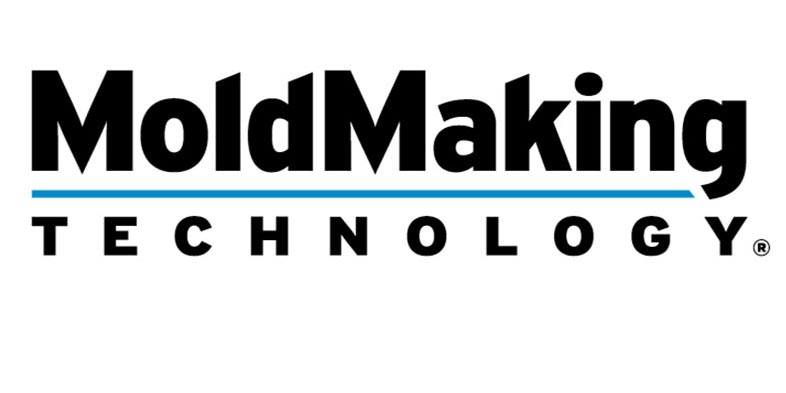

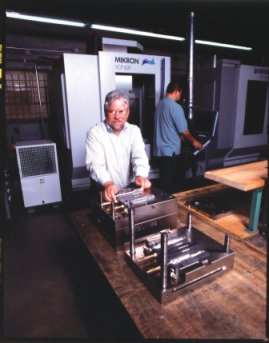
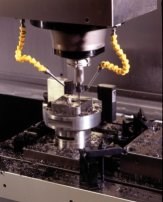
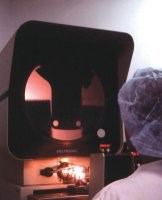
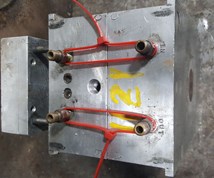
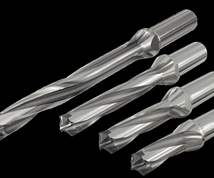
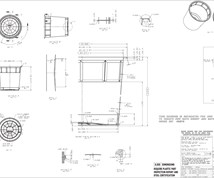
.jpg;maxWidth=970;quality=90)

